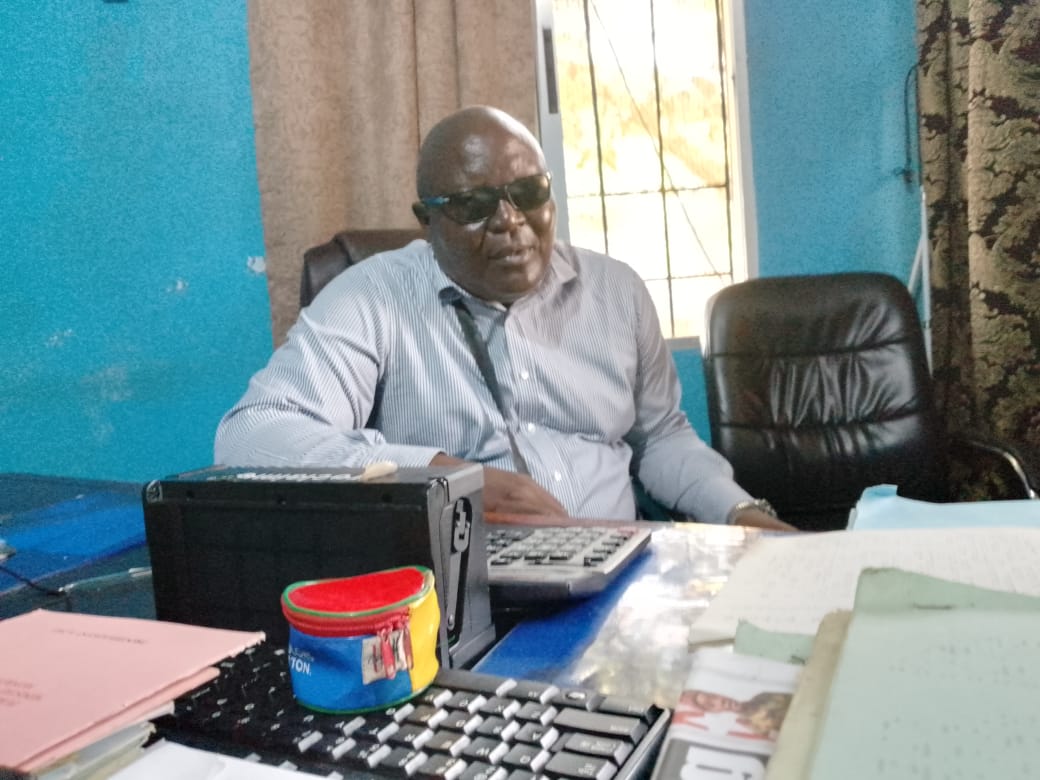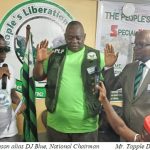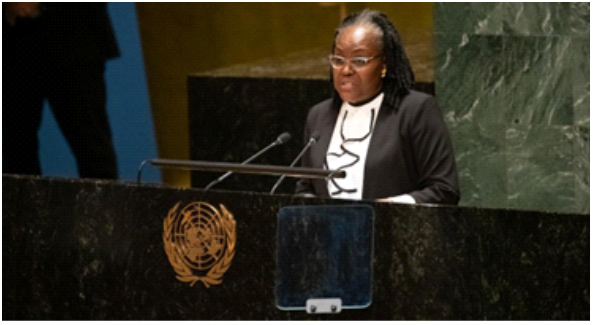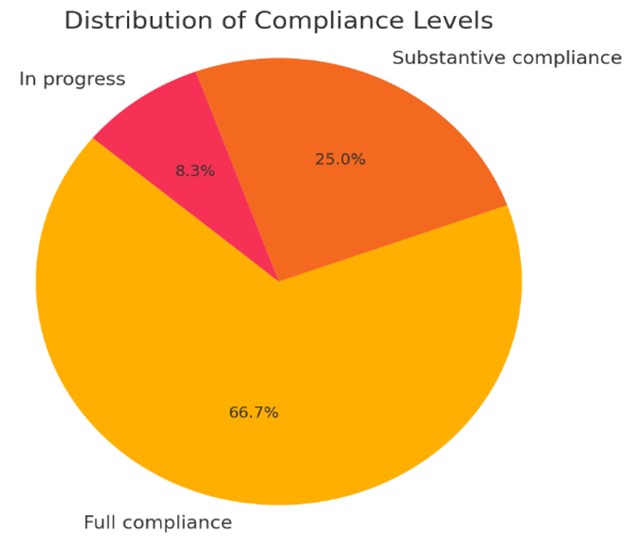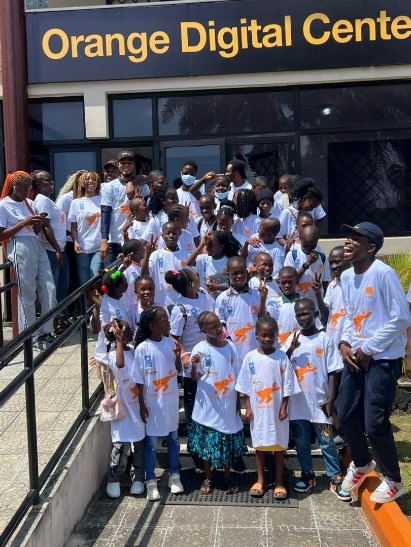With the recent resolution signed by the Liberian Senate for the establishment of a war and economic crimes court(WECC) in the country, the Christian Association of the Blind (CAB) has hailed this latest move by the government.
The CAB, through its National President and CEO, Beyan G. Kota, in a release issued on April 8, 2024 said the government through the National Legislature signing of a resolution for the setting up of the war and economic crimes court to bring the perpetrators to justice is timely.
CAB voiced that it supports the full implementation of the recommendations that emanated from the Truth and Reconciliation Commission (TRC) and ensuring the rule of law for maintaining peace and unity to the benefit of all in Liberia.
The Liberia Christian Association of the Blind said it herewith stands in support of the establishment of an extraordinary criminal tribunal for Liberia for all persons recommended by the TRC for the commission of human rights violations, including violations of international humanitarian and human rights laws, war and economic crimes including but not limited to, killing, gang rape, multiple rape, forced recruitment, sexual slavery, forced labor and dismemberment of persons, among others, thus resulting into the increase of the population of persons with disability following the 14 years of civil war in Liberia.
On the flipside, the CAB boss uttered also in the release that January 22, 2024 saw another historic movement unfolded in Liberia with the peaceful transfer of power from one democratically elected president to the other. He said a new administration, led by President Joseph N. Boakai, has taken the helm of leadership, and a spirit of hope and renewed commitment for an inclusive nation has engulfed the people.
With this, the CAB in the release signed by Kota, said they are applauding what they termed as the early steps taken by President Boakai towards the goal of inclusion, such as the appointment of a visually impaired individual to a key position, as Deputy Director for Operations at the Liberia National Transit Authority (NTA).
According to the CAB, this action is not only welcoming; it sends a peaceful message that the Boakai administration recognizes the value of inclusion and is committed to dismantling the barriers that have for long hindered the full participation in national life of Liberians who are blind.
On the recently introduced ARREST Agenda of the Unity Party (UP)-led government, focusing on agriculture, roads, rule of law, education, sanitation, and tourism, the CAB President/CEO voiced that same presents a unique opportunity to create a more equitable society. He added that the ARREST Agenda lays out a comprehensive vision for national progress.
The CAB boss was quick to add that in order for the ARREST Agenda to be fully realized, it must embrace the specific needs and concerns of the blind and partially-sighted community across the nation state.
The CAB boss pointed out that Liberia’s rich agricultural sector holds immense potentials for the visually impaired and blind community as the ARREST Agenda is emphasizing new technologies that unfolds a future where innovation bridges the gap between disability and agricultural productivity.
Kota underscored the importance of accessible training programs tailored to the needs of the blind, coupled with the provision of assistive technologies to unlock a world of opportunity.
However, training programs, the CAB underscored, must empower the blind to utilize voice-enabled applications to access crucial information on the planting techniques, soil composition, or market trends. “This should integrate the leveraging of specialized tools for safe and efficient weeding, harvesting, or livestock management,” Beyan Kota stated.
Kota said he is of the belief that if this is made possible by the Boakai-led administration’s ARREST Agenda itwill empower blind Liberians to become, not just beneficiaries, but active contributors to Liberia’s economic growth.
On road connectivity, the CAB president/CEO emphasized that building roads for independent mobility is pivotal. He noted that safe and accessible roads are not just a matter convenience; they are what he considers a lifeline for the blind community in Liberia.
CAB boss explained, “The white cane, a symbol of independence and mobility for the blind, becomes even more crucial in navigating this new landscape. It empowers us to move with confidence, advocating for ourselves and actively participating in shaping a brighter future for all Liberians,” he explained.
Regarding rule of law and ensuring the safety of the blind and visually impaired, as spelled out in the ARREST Agenda of the UP Government of President Boakai, the CAB said existing laws aimed at protecting the rights of the blind, such as the Act on the Use of the White Cane (2023), need stronger enforcement.
The CAB then called on the government to uphold these laws and ensure the safety and security of the blind and visually impaired, emphasizing that law enforcement personnel should receive basic training on disability awareness and appropriate interaction with blind individuals in society.
At the same time, the CAB noted that the ARREST Agenda on education must include a strong commitment to exclusive education for blind children which requires accessible learning materials, qualified instructors trained in Braille and other assistive technologies, and support services to ensure equal access to quality education.
Regarding sanitation, CAB boss said he wants the ARREST Agenda’s sanitation initiatives prioritize the need of the blind community by ensuring accessible toilets and waste disposal systems, to include features like Braille signage, grab bars, and clear pathways to ensure safety and independent use of these facilities.
According to the CAB boss, improved sanitation is essential for everyone’s health and well-being in Liberia,including the visually impaired and blind community.
The CAB averred that in as much as the Unity Party ARREST Agenda presents a powerful framework for national development. “We must acknowledge that true inclusion requires action beyond these six pillars.”
However, the CAB, through its National President/CEO, Beyan Kota, also applauded President Boakai’s first step towards a technologically empowered future for Liberia as was promised his State of the Nation’s Address(SONA), thus committing his government to the training of 10,000 Liberian youths in the use of basic ICT skills.
The CAB president urged the government, through the Liberia Telecommunication Authority (LTA), to actively recruit and train youth with disability alongside their peers in the ICT program.

